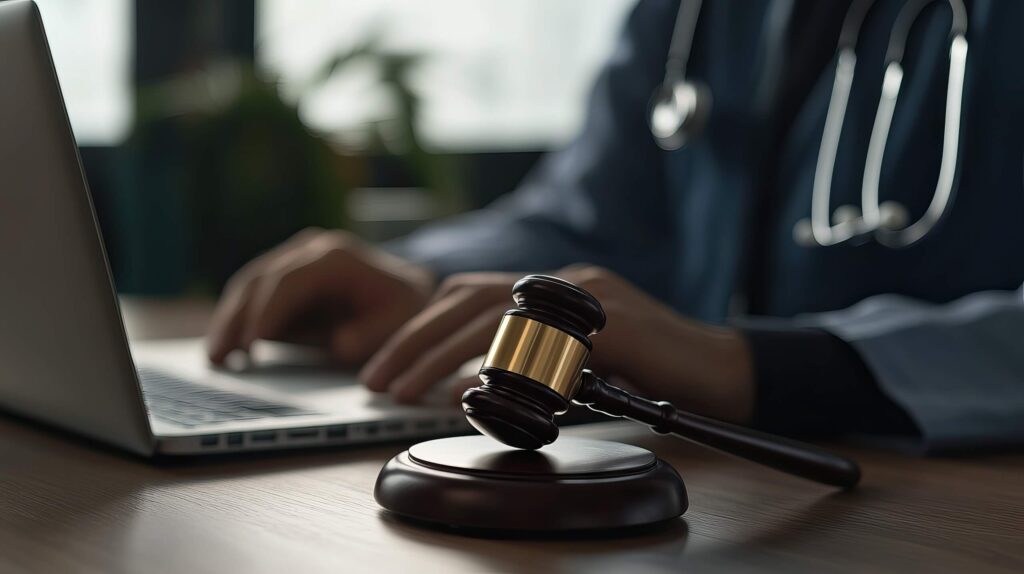What NOT to Do When You’re Injured
Accidents and injuries are unexpected, often traumatic events in our lives. They can bring pain, stress, and financial concerns. If you’re injured, particularly due to someone else’s negligence, there’s a roadmap to help you protect your legal rights. Unfortunately, some steps, if taken, can jeopardize your potential compensation. This guide by Purchase, George & Murphey, P.C. outlines crucial pitfalls to avoid.
1. Not Seeking Immediate Medical Attention
Even if you believe your injury is minor, it’s vital to see a doctor promptly. Sometimes, the full extent of injuries may not be evident immediately and can get worse if untreated. Moreover, a delay in seeking medical attention could be used against you, suggesting that the injury wasn’t that serious.
2. Not Following Medical Advice
If your doctor prescribes therapy, medication, or rest, follow their advice. Skipping appointments or not following through with treatment might be seen as negligence on your part, which can affect the outcome of a claim.
3. Giving Statements Without Legal Counsel
After an accident, you might be approached by insurance adjusters who’ll ask for your statement. It’s important not to discuss the accident or your injuries without first consulting with a lawyer. Anything you say could be used against you later.
4. Posting on Social Media
In the age of the digital world, our first instinct is often to share experiences on social media. However, these posts can be misinterpreted or taken out of context. Pictures of you appearing healthy or comments downplaying the incident can be detrimental to your case.
5. Not Keeping a Personal Injury Journal
It can be invaluable to keep a journal detailing your pain, symptoms, and challenges faced due to the injury. This record can be crucial evidence showing the extent and duration of your suffering.
6. Not Preserving Evidence
Photos, videos, clothing, and any other physical evidence from the scene can play a pivotal role in building your case. Ensure they are stored safely.
7. Accepting the First Settlement Offer
Insurance companies are businesses. Their primary goal is to pay as little as possible. The first offer they make is often not in your best interest. Accepting the first settlement offer after an injury or accident might seem like a quick and easy way to resolve the situation and get compensation. However, there are several compelling reasons why this often isn’t in the best interest of the victim:
- Initial Offers Are Usually Low: Insurance companies are profit-driven businesses. Their primary objective is to minimize expenses and payouts. As a result, their first offer is typically a low-ball figure, aiming to close the case cheaply and quickly.
- Underestimation of Long-term Costs: The initial offer might cover immediate medical bills, but it may not take into account long-term medical costs, rehabilitation, therapy, and potential future surgeries.
- Loss of Income: The first settlement might not adequately factor in lost wages, especially if the injury leads to long-term disability or affects your ability to work in the same capacity as before.
- Non-economic Damages: Pain, suffering, emotional distress, and reduced quality of life are non-economic damages that might not be fully addressed in an initial offer.
- Lack of Information: The first offer often comes before all the facts and details of the accident or the full extent of the injuries are known. Accepting it may mean you’re settling without knowing the complete picture.
- Bypassing Expert Opinion: Without consulting with an attorney, you might not understand the true value of your claim. Personal injury attorneys are experienced in evaluating damages and can provide a more accurate estimate of what fair compensation should be.
- Finality: Once you accept an offer and sign the settlement agreement, it’s typically final. If future complications arise from your injury, you can’t go back and ask for more money.
- Lack of Leverage: By showing willingness to accept the first offer, you might be signaling to the insurance company that you’re eager to settle or that you’re unsure of the strength of your case. This can reduce your bargaining power in negotiations.
- Legal Complexities: There might be multiple parties liable, or other legal nuances involved. An attorney can help identify these complexities and ensure that all responsible parties are held accountable.
- Peace of Mind: Negotiating and understanding the intricacies of personal injury law can be complex. By not accepting the first offer and seeking expert counsel, you can have peace of mind knowing you took the necessary steps to secure the best possible outcome.
8. Not Hiring an Experienced Personal Injury Attorney
All lawyers are not created equal. Personal injury law is a specialized field. Ensure that your attorney has extensive experience in handling cases similar to yours.
9. Failing to Report the Accident
Failing to report an accident, whether it’s a car crash, a workplace incident, or a slip and fall, can have significant repercussions. Here’s why neglecting this crucial step is a bad idea:
- Legal Obligation: Many jurisdictions mandate that certain types of accidents, particularly vehicular ones, be reported to the police or other relevant authorities, especially if they result in injury, death, or significant property damage. Failing to report can lead to fines, penalties, or even criminal charges.
- Documentation and Evidence: Official reports provide an unbiased account of the incident. This documentation can be invaluable when establishing the facts, determining liability, and defending your rights, whether in insurance claims or in court.
- Insurance Requirements: Many insurance policies have clauses requiring accidents to be reported within a specific timeframe. Failure to do so can result in the insurance company denying your claim.
- Delay in Medical Attention: Reporting an accident usually results in the immediate availability of medical assistance, ensuring any injuries are promptly addressed. Even if injuries seem minor initially, they could manifest or worsen over time.
- Admissibility in Court: An official record made shortly after the accident can be crucial evidence in court. The longer the delay in reporting, the more room there is for the other party to contest details or claim memory discrepancies.
- Potential for Escalation: If you don’t report an accident and the other party does, their version of events becomes the primary narrative. This can complicate matters if their account is inaccurate or biased against you.
- Accountability: Reporting ensures that responsible parties are held accountable. This can deter negligent behavior in the future and may prevent similar accidents.
- Protecting Others: Especially in cases like workplace accidents, reporting can highlight safety issues or hazards that need addressing, potentially preventing future injuries to others.
- Loss of Witness Testimony: As time passes, memories can fade or become less accurate. By promptly reporting an accident, witnesses can be identified and their accounts documented while events are still fresh in their minds.
- Loss of Credibility: If you delay reporting or don’t report at all, it might raise suspicions about the severity or legitimacy of your claims. This can hinder your chances of getting fair compensation or winning a legal battle.
10. Waiting Too Long to Act
Every state has a statute of limitations – a set period during which you can file a lawsuit. Waiting too long can mean you lose the right to pursue compensation.
Contact an Experienced Personal Injury Lawyer at Purchase, George & Murphey, P.C for a Free Consultation About Your Case Today
While the aftermath of an injury is a challenging time, it’s imperative to be aware of these potential missteps. The journey to recovery, both physically and financially, requires patience and informed decisions. Partnering with a trusted legal team like Purchase, George & Murphey, P.C. ensures you’re in good hands, guiding you away from these pitfalls and toward the justice and compensation you deserve.













